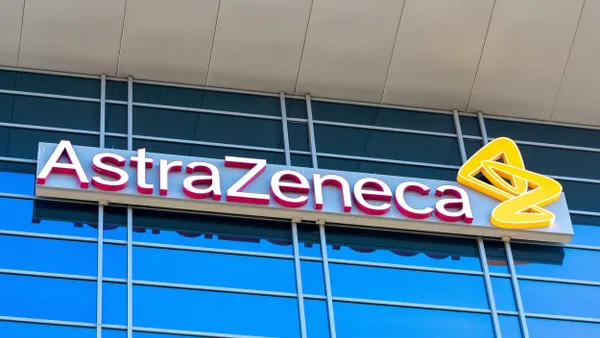A brain drug at the center of a recent $14 billion acquisition has failed a large clinical trial, leading some Wall Street analysts to substantially lower their sales forecasts.
Bristol Myers Squibb closed a deal to acquire the drug, Cobenfy, and its developer in March of last year, about six months before it was approved in the U.S. as a schizophrenia therapy. While launching Cobenfy, Bristol Myers has simultaneously been working to get the drug cleared for other uses, such as adding it on top of atypical antipsychotics for the treatment of schizophrenia.
But that work has now hit a setback. On Tuesday afternoon, Bristol Myers disclosed that an almost 400-person study found its drug not significantly better than a placebo in this setting.
All participants in the study were given atypical antipsychotics, with about half taking Cobenfy and the other half a placebo. Using a well-known, 210-point scale that measures the severity of schizophrenia symptoms, researchers found scores in the Cobenfy group improved by 14.3 points. Though that change was roughly two points better than the placebo arm, it wasn’t enough to hit the trial’s main goal.
Bristol Myers said it will further analyze the results and discuss them with regulators and the medical community. The company also plans to present more detailed data at an upcoming medical conference.
"When patients are already receiving treatment, demonstrating additional statistical benefit becomes inherently more difficult,” said Husseini Manji, a professor in Oxford University’s psychiatry department and co-chair of the U.K. government’s Mental Health Goals program, in a statement from Bristol Myers.
“Although Cobenfy did not demonstrate a statistically significant improvement as an adjunctive treatment in this trial, the data are encouraging,” Manji added. “These findings warrant additional follow up and may provide valuable direction in our ongoing search for complementary approaches to address these persistent treatment gaps.”
Analysts view Cobenfy as a vital revenue driver for Bristol Myers, which stands to lose patent protection on two of its most lucrative products — the blood thinner Eliquis and the cancer immunotherapy Opdivo — in a few years. Yet the trial failure has some rethinking Cobenfy’s commercial outlook. David Risinger, an analyst at Leerink Partners, previously predicted that Cobenfy revenue would reach $5.8 billion in 2030. Now, he has cut that forecast to $2.6 billion.
In a note to clients, Risinger claimed the failure indicates Cobenfy is only modestly effective, igniting fears among his team that the drug has “far less potential than we originally anticipated.”
Sean McCutcheon, from the investment bank Raymond James, lowered his 2030 estimates, too, from a little over $3.7 billion to a little under $3 billion. He also removed the adjuvant schizophrenia opportunity from his model.
According to McCutcheon, perhaps the biggest consequence of the study failure is that it might increase the perceived risk of Cobenfy succeeding in the “myriad” other conditions in which it’s being tested. Those include bipolar disorder, autism spectrum disorder and symptoms associated with Alzheimer's disease like agitation and psychosis.
Others, though, don’t appear as worried. William Blair analyst Matt Phipps still sees a “significant commercial opportunity” for the drug in schizophrenia and, potentially, Alzheimer’s psychosis. And Carter Gould, of Cantor Fitzgerald, argues the trial’s outcome isn’t as dire as it might seem. Bristol Myers said there were underlying trends favoring Cobenfy, for example.
In his own client note, Gould also highlighted how not only was Cobenfy already being used as an adjuvant schizophrenia treatment ahead of the trial results, but feedback given to the Cantor team from some influential doctors suggested they would keep prescribing the drug even if it missed in this setting.
“Bigger picture, the optics around a negative top-line result for one of the bright spots in the commercial portfolio aren’t great, but there’s likely enough here on efficacy for psychiatrists to justify continued and growing use of the drug in schizophrenia,” Gould wrote.
Shares of Bristol Myers were down 4%, to about $48 apiece, in pre-market trading on Wednesday.














